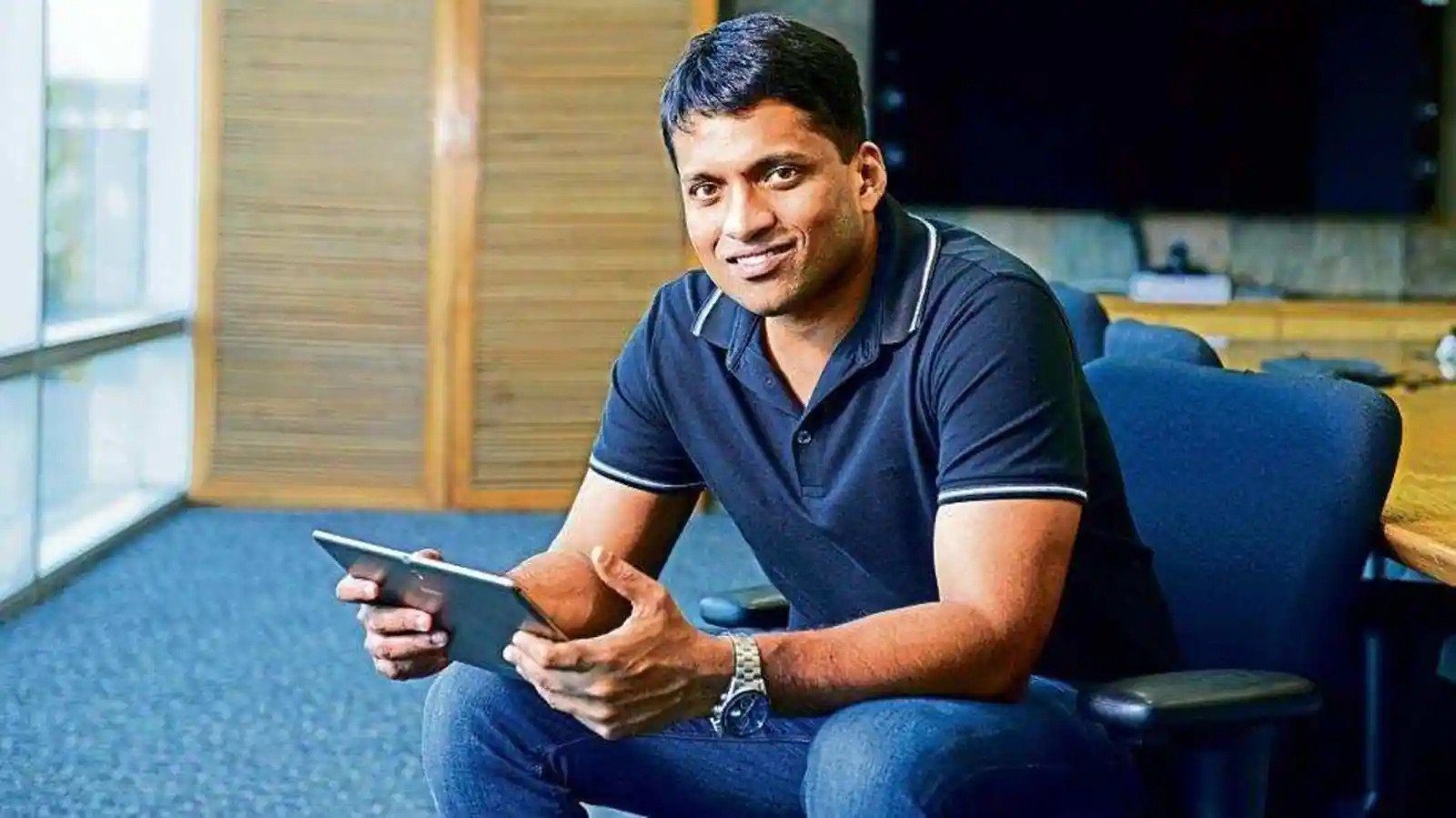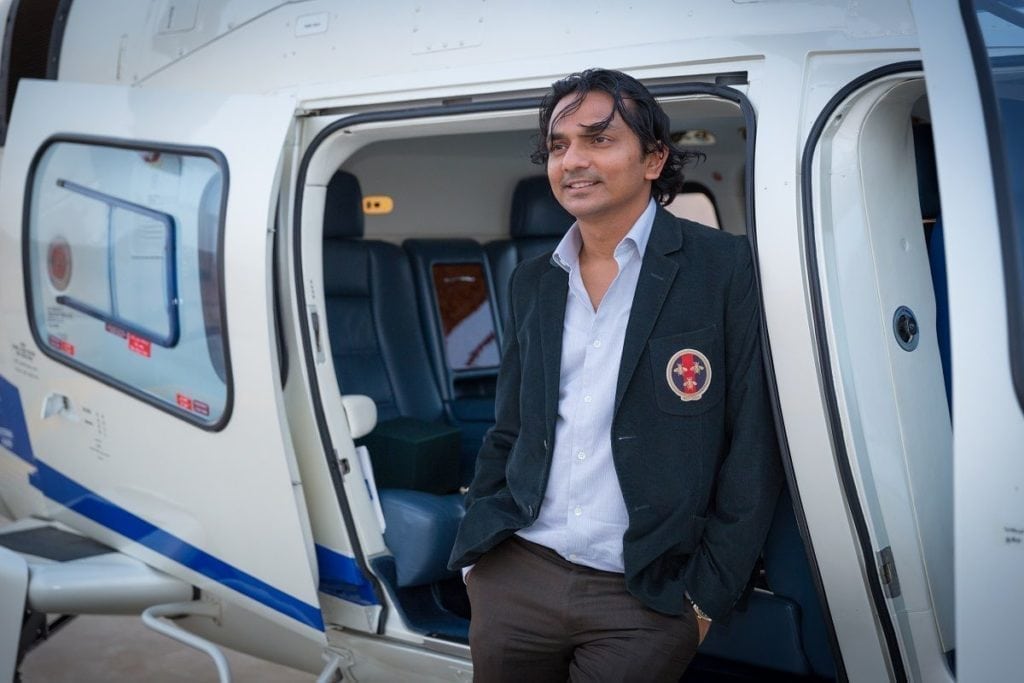(October 29, 2021) Years ago in the picturesque coastal town of Azhikode was a young lad who studied at a Malayalam-medium school. Born to teacher parents, he would often skip classes and learn at home instead. But who was to know that a few years down the line, he was going to become a teacher himself and build a world-class product that brought learning right to one’s doorstep. Byju Raveendran’s success story is fit for a film script. From helping friends with CAT prep to acing the exam himself with minimal preparation, he’s had a flair for business and management and it shows in the success of BYJU’s.
The company that this Global Indian built with his wife Divya Gokulnath is today considered one of the most valuable education technology companies. In fact, this entrepreneur has found his fair share of accolades coming his way as well. From being awarded the 2019 Manorama Newsmaker award, the 2020 Ernst & Young Entrepreneur of the Year title, to being listed in Fortune Magazine’s 40 Under 40 and receiving the 2021 Forbes India Leadership Award, he has managed to add many a feather to his entrepreneurial cap.
Access to quality education can change a student's life. We are honoured to partner with the NITI Aayog in building India! #byjus #EducationForAll #NITIAayog #inittogether https://t.co/DT7BWJcNSa
— BYJU'S – The Learning App (@BYJUS) October 1, 2021
The boy from coastal Kerala
Born in 1981 in Azhikode to teacher parents, Byju’s journey was always deeply entrenched in academics. His father was a Physics teacher and his mother a Math teacher at a Malayalam-medium school in Kannur; the same school where Byju studied. The boy would often skip classes, but made up for it by learning at home. He went on to graduate as a mechanical engineer from the Government Engineering College in Kannur before moving to Singapore in 2001 to work with a shipping company. When he’d visit home, he’d often spend time tutoring his friends preparing for the competitive CAT.
Curious to see how he’d score, he took the test twice himself… with minimal preparation. He got through both times having scored 100 percentile and got interview calls from the IIMs. But Byju’s heart lay in teaching and an MBA was not his cup of tea. By 2005 he’d quit his job and moved back to India to teach MBA aspirants and his popularity as a teacher soared. In 2011 he formally set up his company Think & Learn, today BYJU’s parent company. While it initially offered coaching for CAT aspirants, Byju gradually expanded to other subjects as well.

Entrepreneurial journey
As business grew, Byju launched BYJU’s – The Learning App, an online offering in 2015; it soon climbed the popularity charts for offering students personalised learning programmes. Four years in the making, the app offered educational material to school students as well as coaching for CAT, NEET, UPSC, GMAT, JEE and GRE. What clicked for the app was how interesting and engaging the educational material was made.
Today, BYJU’s is the largest edtech platform in India with several lakhs of subscribers in its kitty. But according to Byju, they have only reached just 2% of the country’s student population. In an interview with The Week he said, “Education is the best way to make it big and our efforts are to help children become self-learners in order to chart their own journeys. In this segment, the fun is in helping millions think and learn better.”

Byju Raveendran’s wife and co-founder Divya Gokulnath
The app’s Knowledge Graphs point students in the direction of how different concepts are related to each other and shows them relevant concepts or information based on what he/she is learning at that point of time. This allows the whole learning process to get personalised as per the student’s learning pace and strengths.
From strength to strength
Today, BYJU’s is one of the most funded education startups in the world with a total of $1.6 billion in funding. Some of its marquee investors include Mark Zuckerberg, Tencent, Naspers, and Mary Meeker’s Bond Capital.
The pandemic and resultant need for online learning has only helped further leverage BYJU’s popularity. The startup doubled its revenue to ₹2,800 crore in 2020; the edtech industry in India is estimated to be worth $750 million. According to an EdTech in India report, the online education in India is projected to increase by 6.3 times by 2022. BYJU’s, thus, happens to be at the right place and at the right time.
Since its launch, the startup (now a decacorn) has come a long way and is now India’s most valuable startup, overtaking even Paytm with a valuation of $16.5 billion.
Giving Back
Last year Byju launched an Education for All initiative to make digital learning accessible to millions of children from underserved communities. The programme aims at democratizing education by ensuring that all children get equal access to quality learning opportunities. To this end, BYJU’s signed MoUs with mission-aligned partners like The American India Foundation, Magic Bus, Save the Children, United Way and Vadham Tea. Through this, Byju hopes to impact at least 5 million children by 2025.


